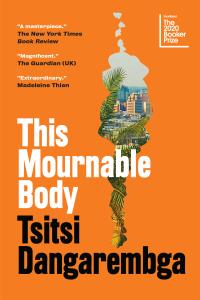The Sky above the Roof
“The profundity of Appanah’s tale, sensitively translated by Geoffrey Strachan, emerges from a puckish mix of the fairy tale . . . and the meta. . . . All is shot through with a mournful lyricism. As the family’s situation refuses to resolve easily, the book’s sincerity glows anew. ‘One’s heart needs to be scrubbed clean every day, at every challenge,’ the narrator says. The world’s beauty lies in its imperfection—and in our earnest, if inadequate, stabs at ethereal escape.”—Mike Peed, The New York Times Book Review
One night, seventeen-year-old Wolf steals his mother’s car and drives six hundred kilometers in search of his sister, who left home ten years ago. Unlicensed and on edge, he veers onto the wrong side of the road and causes an accident. He is arrested and incarcerated, forcing his mother and sister to reconnect and pick up the pieces in order to fight for his release.
What follows is a lyrical, precise, and unflinching account of the events that led to this moment, told through the alternating perspectives of Wolf’s mother, sister, and grandfather, as well as the doctor who was present at Wolf’s birth. With each chapter, new versions of the story and views of reality unfold, and they fit together like puzzle pieces: in an uncertain order at first, and then slowly falling neatly into place as the pages turn. As details about the characters’ lives and the disconnections in their relationships are revealed, the story becomes even more propulsive, even more compelling.
In this raw and poignant novel, Nathacha Appanah considers how trauma shapes generations and the wounds it leaves behind. The Sky above the Roof is both a portrait of a fractured family and a poetic exploration of the ways we break apart and rebuild.
Praise
“A lyrical and richly human exploration of the disruptive turbulence engendered by family and identity.”—Booklist
- “Lyrical and striking. . . . [The Sky above the Roof is] a tender and beautiful portrayal of unarticulated pain.”—Publishers Weekly
- “Taut and impressionistic.”—Meg Nola, Foreword Reviews





